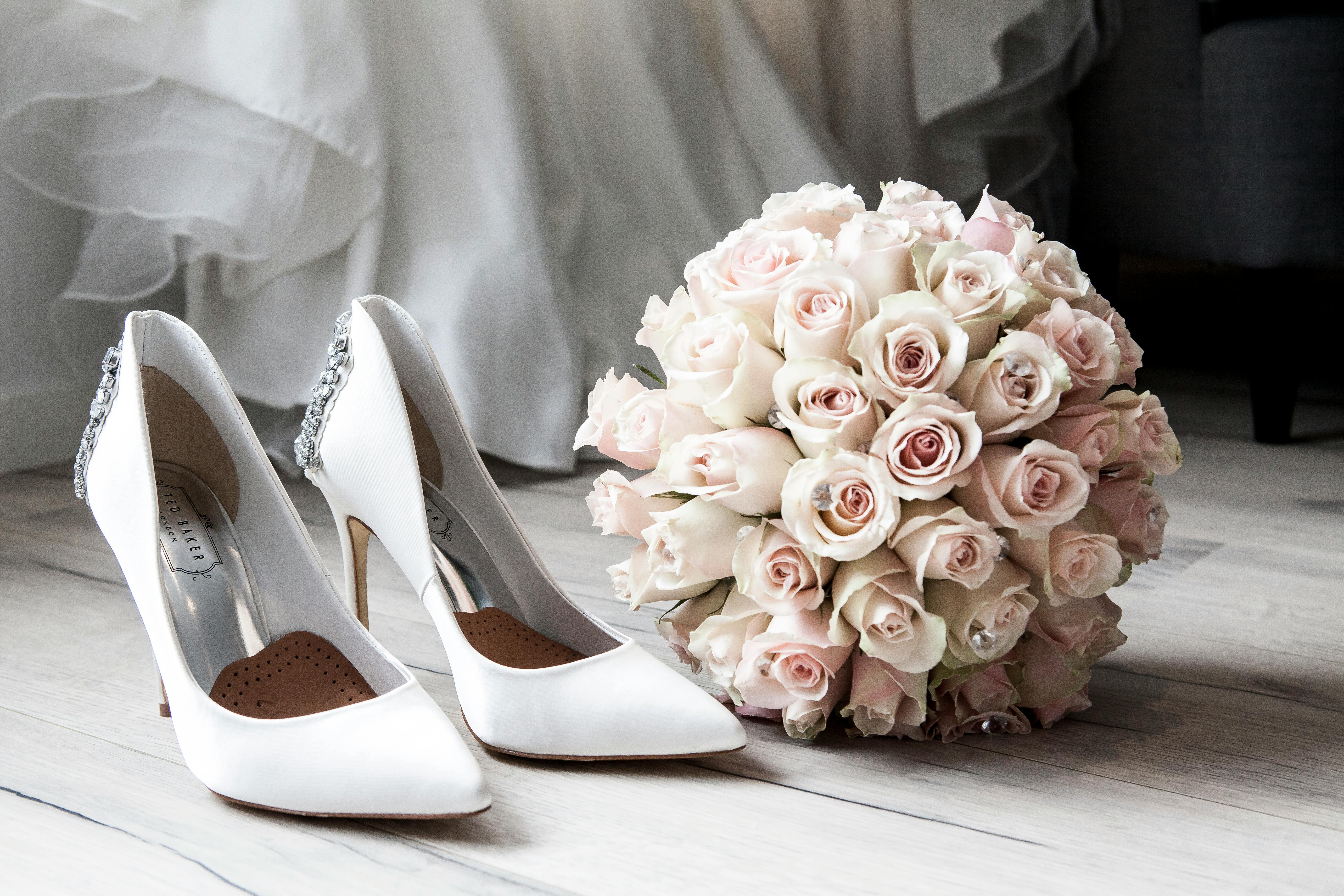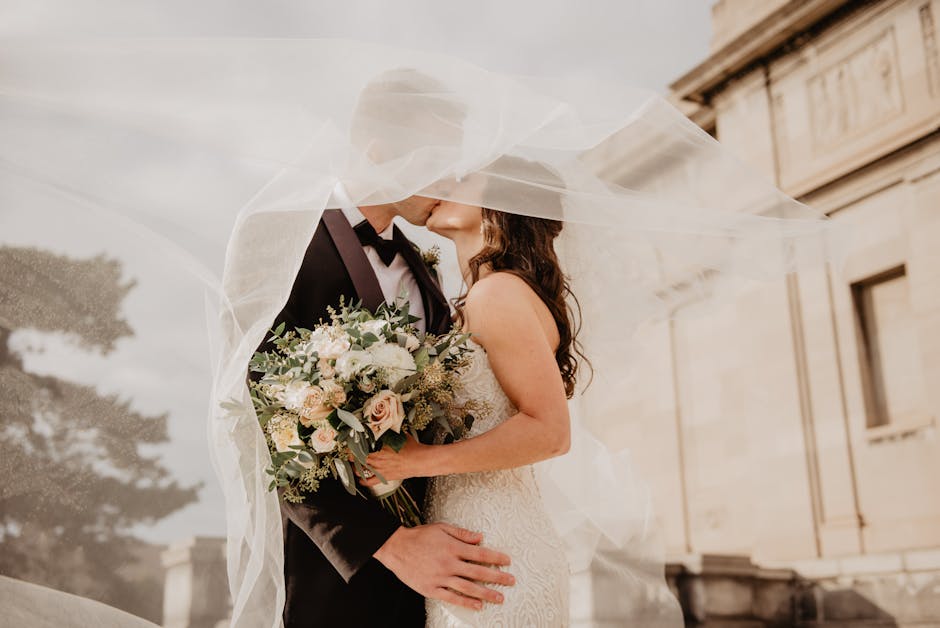
Unveiling the Role of a Marriage Celebrant: Benefits, Pros, and Cons
Understanding the Role of a Marriage Celebrant
Marriage celebrants play a vital role in wedding ceremonies, where they officiate and legally conduct the union of two individuals. Their role goes far beyond simply conducting the ceremony; they are entrusted with ensuring that the couple's wishes and beliefs are respected, while adhering to legal requirements.Marriage celebrants are responsible for creating a personalized wedding experience that reflects the couple's values, cultural background, and particular desires for their special day. They meticulously listen to the couple's preferences, offering guidance and suggestions to craft a ceremony that is both memorable and meaningful.
Communication is key for a marriage celebrant. They engage in open conversations with the couple to comprehensively understand their expectations and intentions for their big day. With this understanding, they collaborate with the couple to create a customized script or outline for the ceremony - one that conveys their love story while capturing the emotions and sentiments they want to express.
In addition to drafting the ceremony script, marriage celebrants may also provide recommendations regarding vows, readings, and rituals or traditions that could further enhance the symbolic significance of the union. They ensure that all legal obligations are fulfilled by acquiring necessary documentation such as marriage licenses.
On the wedding day itself, marriage celebrants orchestrate the ceremony with great care and professionalism. They set the stage by arranging any essential elements, like seating arrangements or ceremonial objects, ensuring everything runs smoothly. With a calming demeanor, they professionally guide the couple through the entire process - from entrance to exchange of vows, ring exchange, pronouncement of marriage, and any additional elements chosen for their unique ceremony.
During the ceremony's delivery, they articulate each word thoughtfully and meaningfully so that loved ones can truly embrace each moment. Marriage celebrants understand how significant this day is for couples and work hard to foster an environment where they feel comfortable and supported throughout.
Beyond the wedding day itself, marriage celebrants typically manage legal paperwork to ensure the marriage is officially registered in accordance with the relevant legal authorities. This includes submitting the necessary documents and providing guidance on name changes, if desired.
In summary, a marriage celebrant's role extends deeply into a couple's nuptial journey. They act as facilitators, coordinators, creative guides, and storytellers all wrapped into one. By understanding and appreciating the uniqueness of each couple, they deliver a personalized wedding ceremony that exquisitely captures their love, personality, and commitment. Ultimately, their primary objective is to create a solemn celebration that marks the beginning of a beautiful new chapter for the couple.
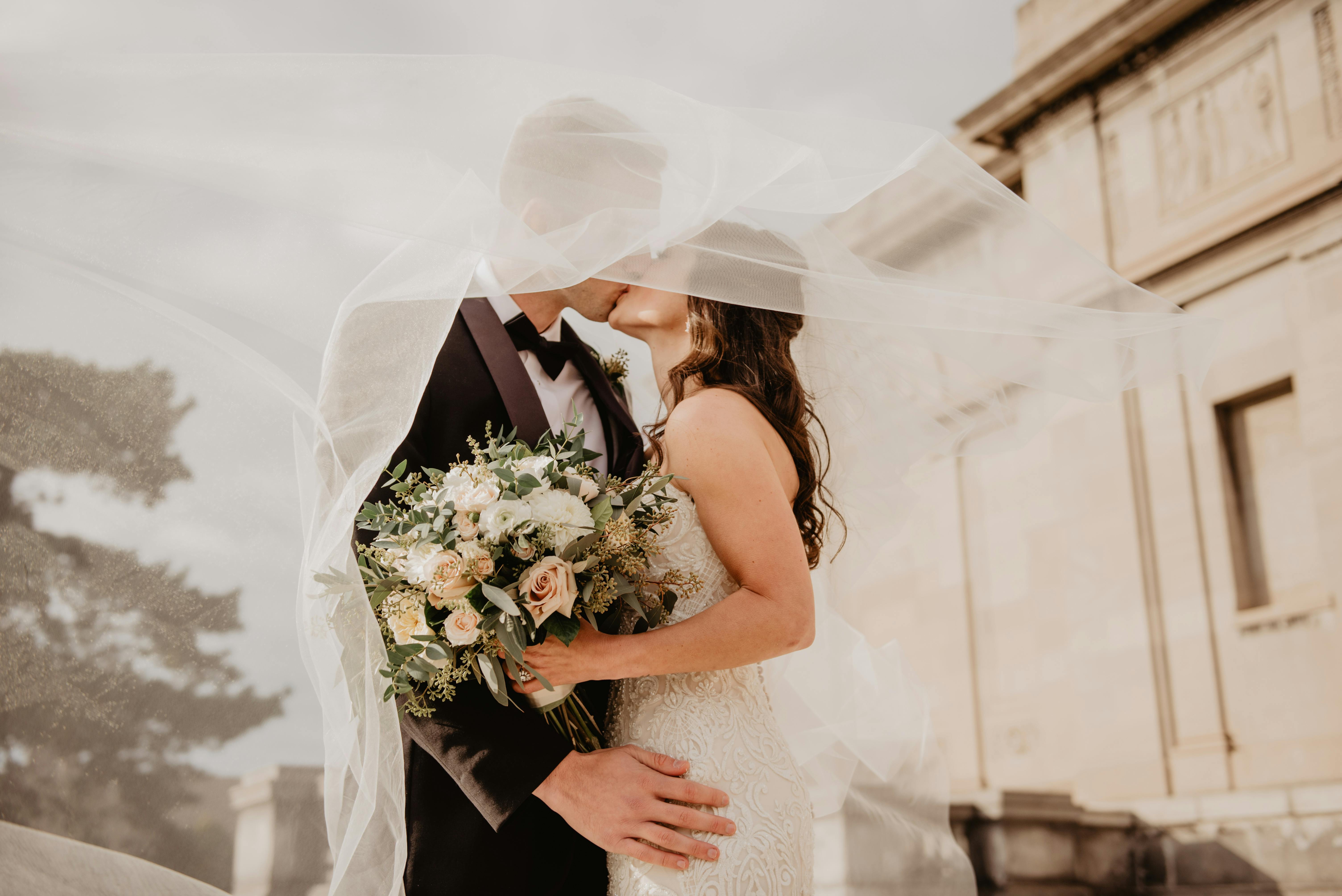
The Benefits of Choosing a Professional Marriage Celebrant for Your Wedding
Planning a wedding is an exciting yet overwhelming experience. From finding the perfect venue to selecting the most beautiful flowers and mouthwatering menu, there are numerous decisions to be made. Amidst all these preparations, it's essential not to overlook the importance of choosing a professional Marriage celebrant for your wedding ceremony. Hiring such a skilled individual offers numerous benefits that contribute to creating an unforgettable and intimate experience for you and your partner. Here are some reasons why engaging a professional marriage celebrant is crucial:Firstly, a professional marriage celebrant will provide you with the expertise needed to create a personalized and meaningful ceremony. They possess extensive knowledge of different cultural traditions, modern trends, and legal requirements, allowing them to tailor the ceremony to your unique desires and preferences. Whether you want a traditional or unconventional ceremony, they can incorporate rituals, readings, or any other elements that hold emotional significance for you as a couple.
Additionally, their experience ensures a flawless execution of your wedding ceremony. A professional marriage celebrant understands the flow and dynamics necessary to keep your guests engaged throughout the proceedings. They know precisely when to infuse elements of humor, emotion, or solemnity into the ceremony, helping create an ambience that reflects who you are as a couple.
Moreover, engaging a professional marriage celebrant guarantees their full commitment towards creating a stress-free experience for both you and your partner. Planning a wedding can be overwhelming, and having someone experienced by your side can alleviate many concerns related to scripting vows, organizing readings or hymns, conducting rehearsals, or even filling out legal paperwork correctly. Their careful attention to detail ensures that no aspect of your ceremony is overlooked or inadvertently ignored.
Furthermore, when you choose a professional marriage celebrant for your wedding, they become more than someone officially marrying you — they become an important part of your journey as a couple. By taking the time to understand your story and personal values, they ensure that every word spoken during the ceremony reflects the love and commitment you share with your partner. Their ability to connect with you on a personal level enables them to craft a distinctive ceremony that feels authentic and deeply meaningful.
Lastly, by choosing a professional celebrant, you have peace of mind knowing that all legal requirements will be met and that your marriage will be fully recognized. A professional celebrant keeps up-to-date with legal obligations, ensuring that your marriage certificate is accurately completed and lodged with appropriate authorities promptly. This expertise ensures that your marriage is legally valid and protects you from potential headaches in the future.
In conclusion, selecting a professional marriage celebrant for your wedding ceremony is an investment that pays off in countless ways. Their unparalleled expertise brings a layer of personalization while facilitating a smooth and stress-free experience. From creating a bespoke ceremony to fulfilling legal obligations, entrusting a professional contributes to making your special day truly extraordinary. Allow them to be part of your journey and witness the magic unfold as they guide you in crafting the perfect celebration for your union.

Pros of Having a Marriage Celebrant Officiate Your Ceremony
Having a Marriage celebrant officiate your ceremony can be a wonderful choice for several reasons.Firstly, marriage celebrants are experts in creating personalized and unique wedding ceremonies. They understand that every couple is different and strive to ensure that the ceremony reflects the couple's personalities, values, and beliefs. By working closely with you, they can create an experience that truly represents your love story.
Additionally, marriage celebrants offer a diverse range of ceremonies that can cater to various traditions and religions. They possess the knowledge and sensitivity to incorporate religious or cultural elements into your wedding ceremony if desired. This inclusivity allows couples from different backgrounds to celebrate their union in a way that resonates with their beliefs and values.
Marriage celebrants are also highly experienced public speakers. They have the ability to captivate and engage the audience, ensuring that everyone feels included and connected to the beautiful moment being celebrated. Their expertise in storytelling and public speaking adds depth and emotion to the ceremony, making it a memorable experience for all.
Furthermore, hiring a marriage celebrant provides couples with greater flexibility in choosing the date, time, and location of their ceremony. Unlike traditional religious ceremonies conducted in specific venues or at certain times, celebrants have much greater flexibility to accommodate your preferences. This ensures that your special day can take place at a location and time that feels meaningful and symbolic to you.
Another advantage of having a marriage celebrant officiate your ceremony is their ability to legally marry you. In many countries, including Australia and New Zealand, celebrants are authorized by local governments to perform legal marriages. This means that they can assist you with the necessary legal paperwork, guide you through the process, and ultimately solemnize your marriage professionally and officially.
Lastly, but certainly not least, working with a marriage celebrant allows you to form a personal connection with the person who will be guiding you through one of life's most significant moments. Their empathetic and supportive nature helps establish a trusted relationship, making them someone you can turn to throughout the planning process and even beyond. This personal connection will ensure that your ceremony is conducted with warmth, sincerity, and a deep understanding of your love story.
In conclusion, choosing to have a marriage celebrant officiate your ceremony brings several advantages. From personalized and unique ceremonies to the flexibility of location and time, marriage celebrants provide unparalleled expertise and support for couples who want to create a meaningful and unforgettable wedding experience.
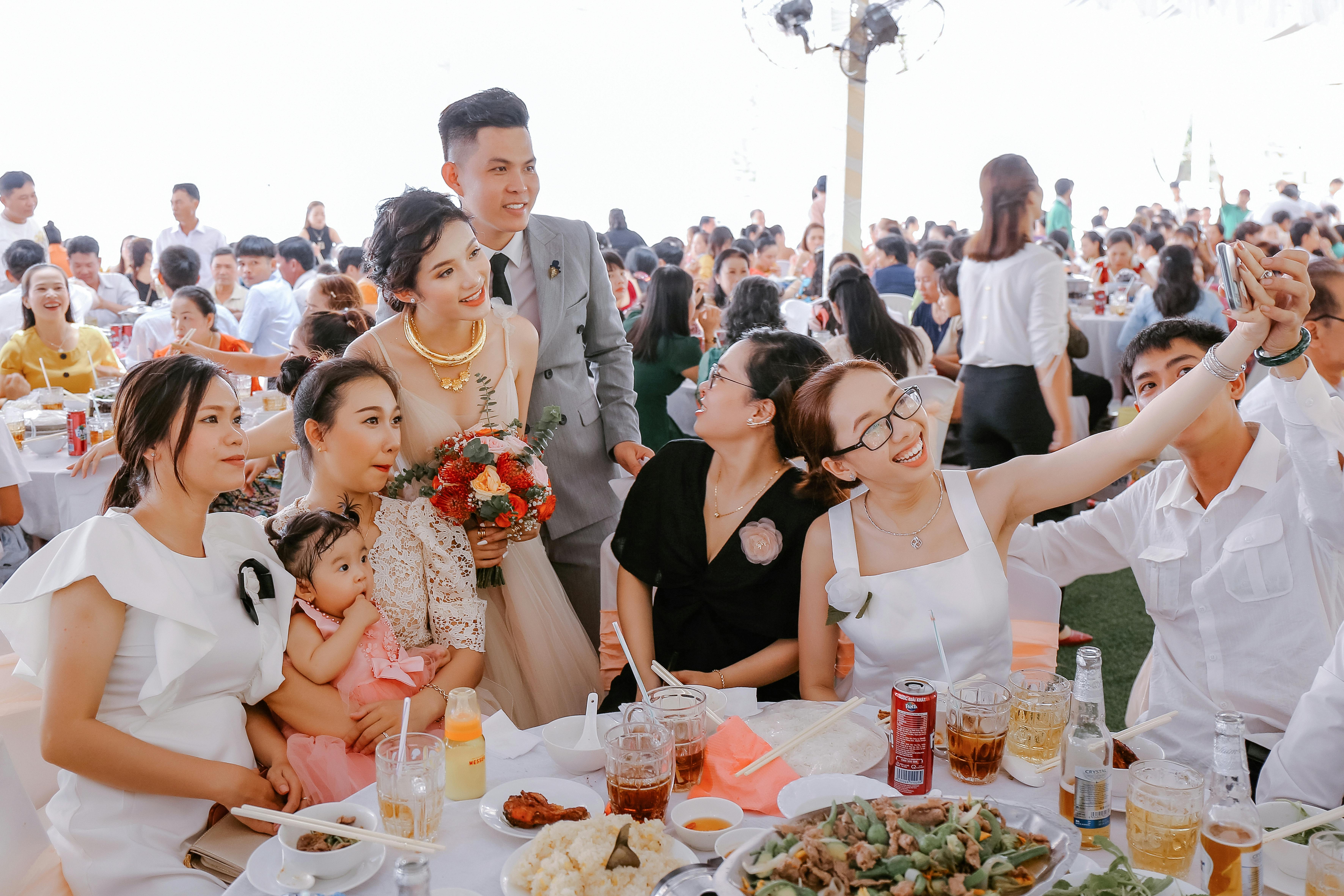
The Downsides: Exploring the Cons of Opting for a Marriage Celebrant
When it comes to selecting a Marriage celebrant to officiate your wedding ceremony, there are certain downsides and cons that you need to be aware of. While choosing a marriage celebrant can certainly have its perks, it is crucial to consider these aspects too:- Limited customization: Marriage celebrants often have a set script or format they follow for wedding ceremonies. This means that you may have limited flexibility in customizing the content, structure, or rituals included in your ceremony. If personalization is a top priority for you, this lack of customization options could be a downside.
- Less religious or cultural traditions: If you are looking for a ceremony tightly aligned with religious or cultural traditions, hiring a marriage celebrant might not always meet your expectations. Celebrants tend to focus on creating a more inclusive ceremony that caters to diverse beliefs and backgrounds, which may result in less emphasis on specific religious rituals or cultural customs.
- Lack of lifelong connection: Unlike religious clergy who may serve as spiritual advisors or community leaders, marriage celebrants usually have a limited role restricted to the wedding day itself. If you desire a lifelong relationship with your officiant, seeking the assistance of a marriage celebrant might not fulfill your needs.
- Potential impersonal approach: While celebrants are skilled at creating meaningful ceremonies, some individuals may feel that they lack the personal touch provided by someone who knows them intimately. A marriage celebrant typically takes time before the wedding day to get acquainted with the couple, but this interaction can sometimes fall short of establishing deep emotional connections.
- Costs involved: Hiring a marriage celebrant often comes with an associated cost. Couples operating on a tight budget might find it difficult to allocate additional funds for this service since they can appoint someone from their local community or pursue alternative ways of having their ceremony officiated without charge.
- Reliance on legal requirements: Marriage celebrants have an obligation to uphold legal requirements and complete necessary paperwork. This means some couples may find themselves having to focus more on the legal aspects of the ceremony rather than wholly immersing themselves in the sentimental and symbolic elements they desire.
- Availability limitations: Finding a reputable and available marriage celebrant can sometimes be challenging, particularly during peak wedding seasons. This limitation might force couples to settle for someone they feel less connected with, compromising their overall wedding experience.
- Contrast in religious beliefs: If you or your partner adhere strongly to certain religious beliefs, employing a marriage celebrant with different beliefs could lead to potential conflicts or disagreements during the ceremony planning process. Overcoming these disparities might require extra effort from both parties involved.
Awareness of these downsides can enable you and your partner to make a well-informed decision when considering whether or not a marriage celebrant is the right fit for your wedding ceremony. By weighing the pros and cons in relation to your specific preferences and requirements, you can ensure your special day aligns with your vision.

Personalizing Your Ceremony: How a Marriage Celebrant Can Help
- Your wedding day is one of the most significant and special days of your life. It's a celebration of love, commitment, and the start of a lifelong journey with your partner. While it may seem overwhelming to plan every aspect of your wedding ceremony, personalizing it can make it even more meaningful and memorable.
- A Marriage celebrant is someone who plays a crucial role in personalizing your ceremony. They are professionals trained to create personalized and unique wedding ceremonies tailored specifically to you as a couple.
- With a marriage celebrant by your side, you have the freedom to express your love story and values through the ceremony. They are experienced in incorporating different rituals, customs, and themes that reflect your uniqueness as a couple.
- Meeting with a marriage celebrant before your big day allows them to get to know you better as individuals and as a couple. They will ask detailed questions about your relationship, journey, and any special memories or milestones you'd like incorporated into the ceremony.
- Marriage celebrants offer an extensive range of ceremony options, from traditional to modern or even themed ceremonies. They can help you choose the perfect readings, vows, music, and symbolic rituals that resonate with you both.
- One significant advantage of having a marriage celebrant is that they have a wealth of resources and ideas at their disposal. They can assist in suggesting meaningful quotes, poems, and rituals that symbolize your relationship and individual personalities.
- A skilled celebrant knows how to strike the right balance between formality and intimacy during the ceremony. They'll ensure that your love story shines through while maintaining the elegance and sanctity of the occasion.
- Your marriage celebrant can also guide you through legal requirements, ensuring all the necessary paperwork is completed correctly and filed on time. This takes away some of the stress involved in legalities so you can focus on enjoying your special day.
- Another advantage of having a marriage celebrant is that they have mastered the art of public speaking and have excellent communication skills. They can deliver your customized ceremony flawlessly, helping set the overall tone for your entire wedding day.
- The level of personalization offered by a marriage celebrant goes beyond just adding names and anecdotes. They can create a storyline that celebrates your journey as a couple, incorporating moments that have helped shape your relationship.
- Your marriage celebrant ensures that all significant family members, friends, or cultural aspects are duly recognized during the ceremony. This inclusivity fosters a sense of love, warmth, and community among all attendees.
- Ultimately, by enlisting the expertise of a marriage celebrant, you can be confident that your ceremony will be an authentic reflection of your relationship. Their creativity and skill in crafting personalized ceremonies will leave you with lifelong memories to treasure.
Remember, planning a personalized wedding ceremony can be as exciting as it is challenging. But with the assistance of a marriage celebrant, you can co-create a truly unique and memorable experience that reflects your love and journey as a couple.
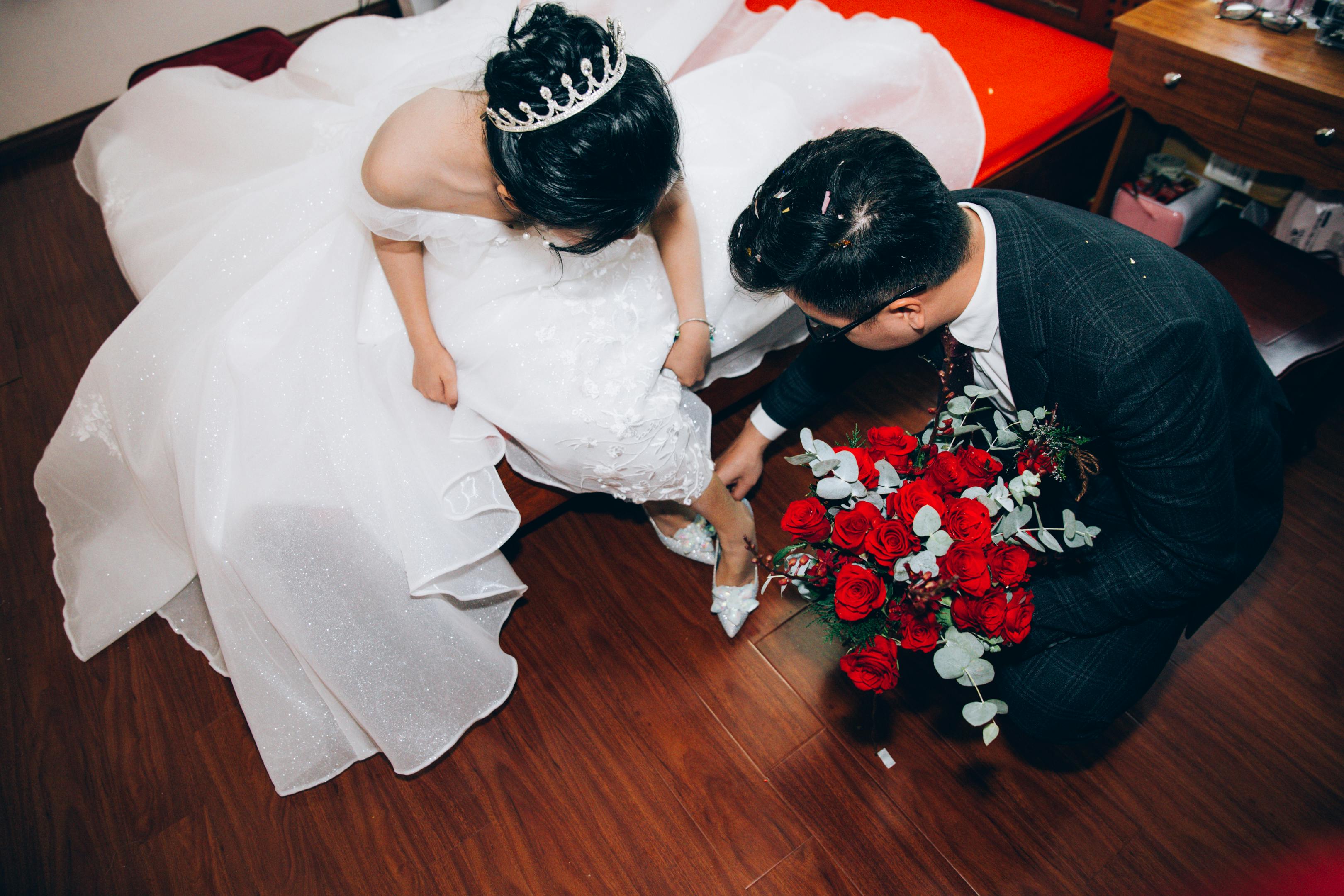
Legal Implications: What a Marriage Celebrant Can and Cannot Do
As a Marriage celebrant, there are certain legal implications that you need to be aware of. These implications determine what you can and cannot do while performing marriages. Understanding these rules and restrictions is crucial to ensure that the marriages you officiate are legally valid and binding. Here's a comprehensive guide on what a marriage celebrant can and cannot do in terms of legal obligations:A marriage celebrant CAN:
- Officiate weddings and solemnize marriages according to the laws and regulations of the jurisdiction they are legally authorized in.
- Perform legal marriages outside of their traditional place of business, such as parks, beaches, private residences, or other locations approved by local authorities.
- Customize and tailor ceremonies to reflect the couple's beliefs, personalities, and preferences, as long as they abide by the legal requirements.
- Offer advice, guidance, and assistance to couples regarding all legal requirements for obtaining a marriage license or certificate.
- Understand and comply with all relevant marriage legislations, including any updates or changes made over time.
- Use ceremonial scripts, vows, quotes, readings, or poems during the wedding ceremony while maintaining alignment with local laws.
- Provide support in completing necessary documentation correctly and submitting it within specified timeframes to ensure accurate records are kept.
A marriage celebrant CANNOT:
- Solemnize a marriage without proper documentation or proof of identity. A valid marriage license must be presented before the ceremony can take place.
- Conduct a marriage ceremony if any party involved is ineligible to marry under the applicable legal regulations (e.g., if one or both individuals are underage or are closely related).
- Solemnize a wedding if one or both individuals lack the mental capacity required for understanding the commitment they are making.
- Perform ceremonies that contain unlawful elements or violate public decency standards. The content must be respectful and lawful.
- Act beyond the scope of merely conducting the wedding ceremony when a celebrant's responsibilities are limited explicitly to this role.
- Offer legal advice on matters unrelated to the marriage ceremony or legislation-specific marriage requirements. A celebrant should refer couples to relevant legal professionals if necessary.
Remember, as a marriage celebrant it is your essential duty to familiarize yourself with the laws particular to the jurisdiction you operate in and conduct wedding ceremonies accordingly. Staying updated with any legal changes is crucial to ensure that every marriage ceremony you perform is legally binding and conducted within specified guidelines.

Comparing Marriage Celebrants to Traditional Religious Officiants
Marriage celebrants play a significant role in ceremony planning and officiating weddings. Depending on a couple's beliefs and preferences, they have the option to choose either a marriage celebrant or a traditional religious officiant for their special day. Both options have their own unique characteristics and considerations.A marriage celebrant is a non-religious professional who carries out legal marriages outside of a traditional religious setting. They are trained and authorized by the government to perform wedding ceremonies that adhere to the legal requirements of the country. As impartial individuals, marriage celebrants provide couples with flexibility in tailoring their ceremony to reflect their personal values, cultural traditions, and love story.
Comparatively, traditional religious officiants oversee weddings within the framework of an established religious tradition such as Christianity, Islam, Hinduism, Judaism, or others. These clergy members conduct ceremonies that observe religious customs and sacred rituals. Couples who are deeply connected to their faith often find great comfort and meaning in having their marriage solemnized by someone within their religious community.
One of the key differences between marriage celebrants and religious officiants is their focus during a wedding ceremony. Marriage celebrants generally emphasize the celebration itself, crafting a joyful and heartfelt atmosphere while highlighting the couple's journey. They may include personalized vows, music choices, readings, or symbolic rituals that hold personal significance for the couple. In contrast, traditional religious officiants center the ceremony around spiritual teachings, prayers, sacred texts, sermons, and other elements important to their faith tradition.
In terms of beliefs and rituals, another contrast exists between the two types of officials. Marriage celebrants offer an open-minded approach that doesn't adhere to any specific faith doctrine or dogma. They are generally inclusive of diverse backgrounds, cultures, and beliefs, allowing couples to incorporate secular or interfaith elements as desired. On the other hand, traditional religious officiants uphold the customs and rituals specific to their faith community. They conduct ceremonies within the guidelines prescribed by their religious traditions, reflecting their beliefs, while often following established protocols.
Couples typically choose between marriage celebrants and traditional religious officiants based on their own values, preferences, and desired ceremony style. Some couples prioritize the flexibility and personalization offered by marriage celebrants, which allows them to have more creative freedom in designing a ceremony that is unique to their love story. Others may prefer the spiritual guidance and connection with their faith community provided by traditional religious officiants.
In conclusion, the decision of whether to choose a marriage celebrant or a traditional religious officiant as a wedding officiant depends entirely on the couple's needs, beliefs, and preferences. Both options fulfill the essential role of legally marrying two individuals, yet they offer distinct approaches to crafting and performing wedding ceremonies. Ultimately, the priority lies in selecting an officiant who resonates with the couple, can bring their vision to life, and create a meaningful and memorable celebration of love.
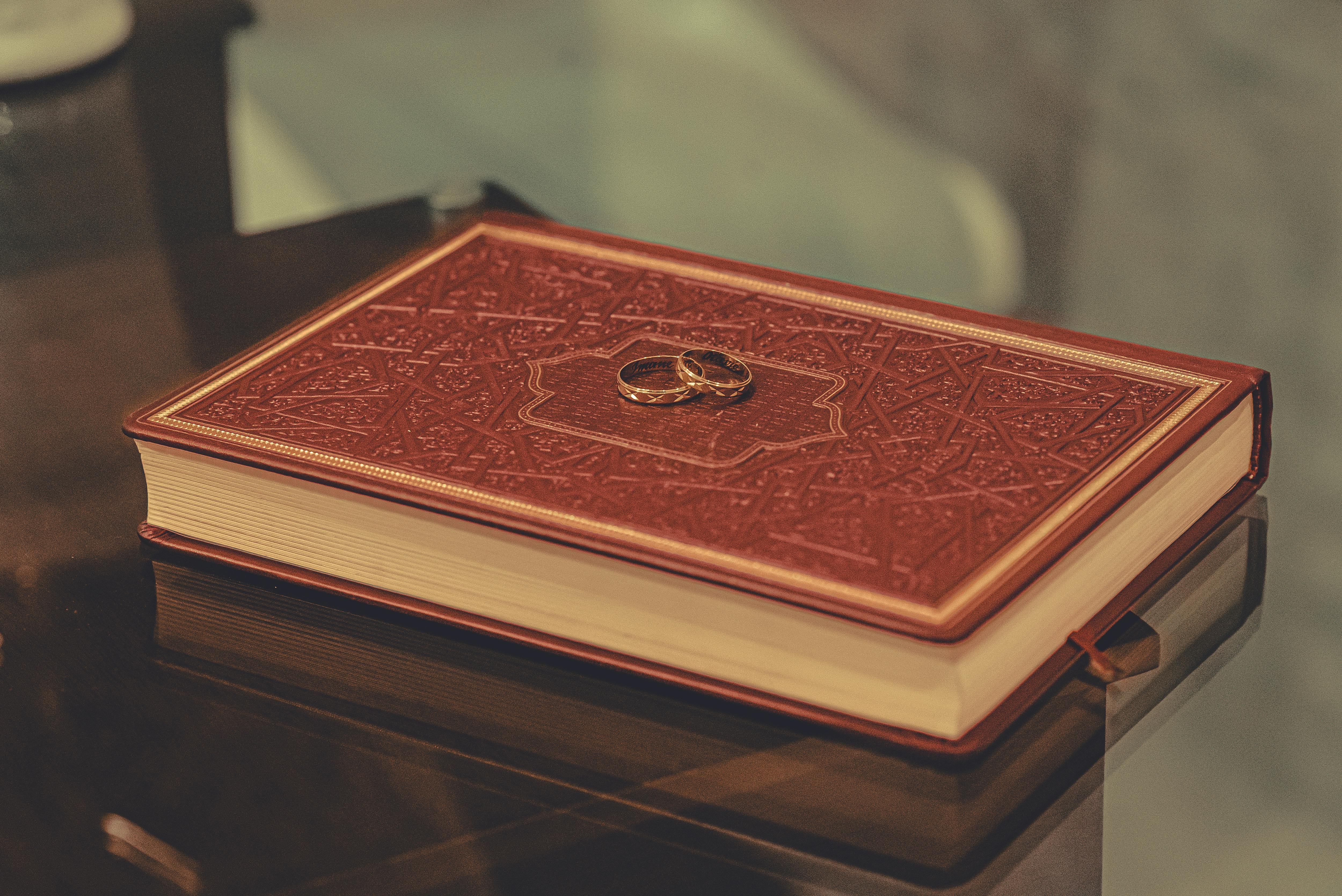
A Day in the Life of a Marriage Celebrant: What to Expect
A day in the life of a Marriage celebrant is filled with meaningful moments and plenty of preparation. From meeting couples to crafting personalized ceremonies, there are various tasks that make up a celebrant's routine. Let's explore what you can expect from this unconventional yet fulfilling profession.As a marriage celebrant, your day often begins with correspondence—answering emails and returning phone calls from excited couples seeking your services. You might discuss their vision for the ceremony, ask about their backgrounds, and request any necessary documents for legal purposes. Building connections with the couple during these initial conversations is crucial to create a ceremony that truly reflects their personalities and desires.
Once an agreement is reached and contracts are signed, you'll move on to scheduling face-to-face meetings with the couples. These meetings offer an opportunity to form a stronger bond, explore their love story in detail, and truly understand what they want for their special day. You might spend hours chatting with them, designing unique rituals, select music choices, or choose readings that hold sentimental value to the couple.
Following these client meetings, it's time to get creative! Drafting scripts for wedding ceremonies is an important part of the job. Careful thought goes into crafting a ceremony that blends tradition and personal touches seamlessly. Each word must capture the essence of their relationship while keeping the audience engaged throughout the proceedings.
Research also plays a pivotal role for marriage celebrants. Familiarizing yourself with laws and regulations related to marriages in your jurisdiction is vital to ensure a legally valid wedding ceremony. Staying updated with current trends in weddings, cultural practices, or modern symbolic rituals will come in handy when working with diverse couples.
On the wedding day itself, expect early mornings as most ceremonies typically take place during weekends. It may involve traveling to various locations: stunning venues, beaches, parks - wherever lovebirds desire. Marriage celebrants should aim to arrive early before guests start arriving, ensuring everything runs seamlessly from the initial guest welcome to the final pronouncement of marriage.
During the ceremony, you'll exude warmth and confidence as you officiate the wedding. Your public speaking skills will be put to good use, ensuring clarity and providing a joy-filled atmosphere for both the couple and attendees. As a celebrant, being respectful of religious beliefs or cultural traditions is essential, ensuring that everyone feels represented and included in the celebration.
Post-ceremony duties encompass the completion of official paperwork required for legal registration of the marriage. You may guide newlyweds through signing necessary documents or advising on obtaining their marriage certificate. Remember to maintain contact with the couple after their special day, checking in to ensure all legal requirements were properly met.
Life as a marriage celebrant combines administrative tasks, artistic creativity, emotional connections with couples, and being able to contribute significantly to one of life's major milestones. Although most celebrations take place on weekends, flexibility is key since some weekdays may involve meetings or administrative work.
While this overview provides a glimpse into a typical day in the life of a marriage celebrant, every day can truly be different. A career as a celebrant often brings surprises, witnessing a myriad of love stories and having the privilege to unite couples in matrimony. If passion for personal connections coupled with concise wordsmithing draws you in, becoming a marriage celebrant may be your perfect calling.

Essential Questions to Ask Before Hiring a Marriage Celebrant
When looking to hire a Marriage celebrant, you want to ensure that you find the right person to officiate your special day. It can be overwhelming with a plethora of options available, but asking the right questions will help take away some of the uncertainty. These essential questions will assist you in narrowing down your search and selecting a marriage celebrant who aligns with your preferences and needs.- What is your availability on our wedding date? Begin by confirming if the celebrant is available on your desired wedding date. If they are already booked, it would be best to move on and explore other options.
- How many weddings have you conducted? Understanding their experience level can help gauge their expertise and confidence in delivering a memorable ceremony.
- Can we personalize our wedding ceremony? Inquire about customizing the ceremony to reflect your personalities, beliefs, and preferences. A talented celebrant should be open to incorporating personal touches to make your ceremony unique.
- What type of ceremonies do you specialize in? Celebrities may have expertise in particular types of wedding ceremonies such as religious, non-religious, cultural, or themed ceremonies. Ensure their specialization aligns with what you desire for your big day.
- What is the process for creating the ceremony script? Understanding how the marriage celebrant develops the ceremony script will give you an idea of their attention to detail and willingness to collaborate with you. Some celebrants follow a predefined format, while others craft personalized scripts from scratch.
- How will you help us prepare for our wedding ceremony? Ask the celebrant about their approach to assisting couples in preparing for their ceremony. It could include meetings or consultations to discuss vows, rituals, readings, or any additional elements that you want to include in your celebration.
- Are you open to including specific rituals or traditions within the ceremony? Communicate if you have any cultural or religious rituals that you wish to include in your marriage ceremony. Ensure that the celebrant you select can accommodate such requests.
- Can you provide references or testimonials from past clients? Asking for references or testimonials can give you an insight into others' experiences, helping you assess if the celebrant is reliable, professional, and able to create a meaningful ceremony.
- What is your fee structure and what does it include? Clearly understanding the celebrant's fees, payment schedule, and what services are included in the package is crucial to avoid any unexpected costs later on.
- Do you have a backup plan in case of an emergency? While rare, life sometimes throws us unexpected curveballs. Check if the celebrant has a contingency plan in place to ensure your wedding ceremony runs smoothly even if they are unable to attend due to unforeseen circumstances.
By asking these essential questions, you'll be better equipped to evaluate potential marriage celebrants and choose the one who appreciates your vision and is capable of creating a meaningful wedding ceremony that celebrates your love.

The Emotional Benefit of Crafting a Unique Ceremony with a Celebrant
Crafting a unique ceremony with a Marriage celebrant goes far beyond the traditional cookie-cutter approach. It allows the couple to delve deeper into their love story and create an experience that is truly reflective of their relationship.One of the most prominent emotional benefits of working with a celebrant is the ability to personalize every aspect of the ceremony. Unlike standardized ceremonies, a celebrant encourages couples to express their individuality and incorporate elements that hold personal significance. This allows the couple to showcase their personalities, values, and beliefs, making the ceremony truly their own.
By collaborating with a celebrant, couples can discuss their vision and aspirations for the ceremony. The discussions serve as invaluable opportunities for self-reflection and introspection, creating a sense of emotional clarity and reinforcing the reasons behind their commitment. Celebrants often ask couples thought-provoking questions that guide them in uncovering meaningful aspects of their relationship.
The process of crafting a unique ceremony offers an excellent opportunity for couples to reflect on their journey together. Relationships evolve over time, and working with a celebrant allows couples to reminisce about pivotal moments that have shaped them as individuals and as a couple. This reflection nurtures emotional connections and reinforces why they have chosen to embark on this lifelong partnership.
Additionally, embracing personalization in ceremonies can help couples honor loved ones who may not be physically present but hold great importance in their lives. Through touching tributes or symbolic gestures, celebrants can provide ample space for acknowledging those who have shaped the couple's lives or remembering cherished memories.
Moreover, crafting a unique ceremony deepens the bond between the couple and the celebrant. Over time, celebrants become invested in the couple's story, ensuring that their beliefs and desires are accurately relayed during the ceremony. The celebrant acts as a conduit between the couple's emotions and their guests, masterfully capturing the essence of their relationship to create an intimate experience for everyone involved.
Finally, having a unique ceremony allows couples to authentically communicate their love and commitment, resulting in an unforgettable experience for both the couple and their guests. By pouring their hearts into personal vows or adding sentimental gestures to the ceremony, the couple can create deep emotional connections that resonate with all those present.
In conclusion, crafting a unique ceremony with a celebrant brings immense emotional benefits for couples. By personalizing every aspect of the ceremony, reflecting on their journey together, honoring loved ones, and authentically expressing love and commitment, couples create a memorable and heartfelt experience that sets the tone for a lifelong union filled with love and happiness.
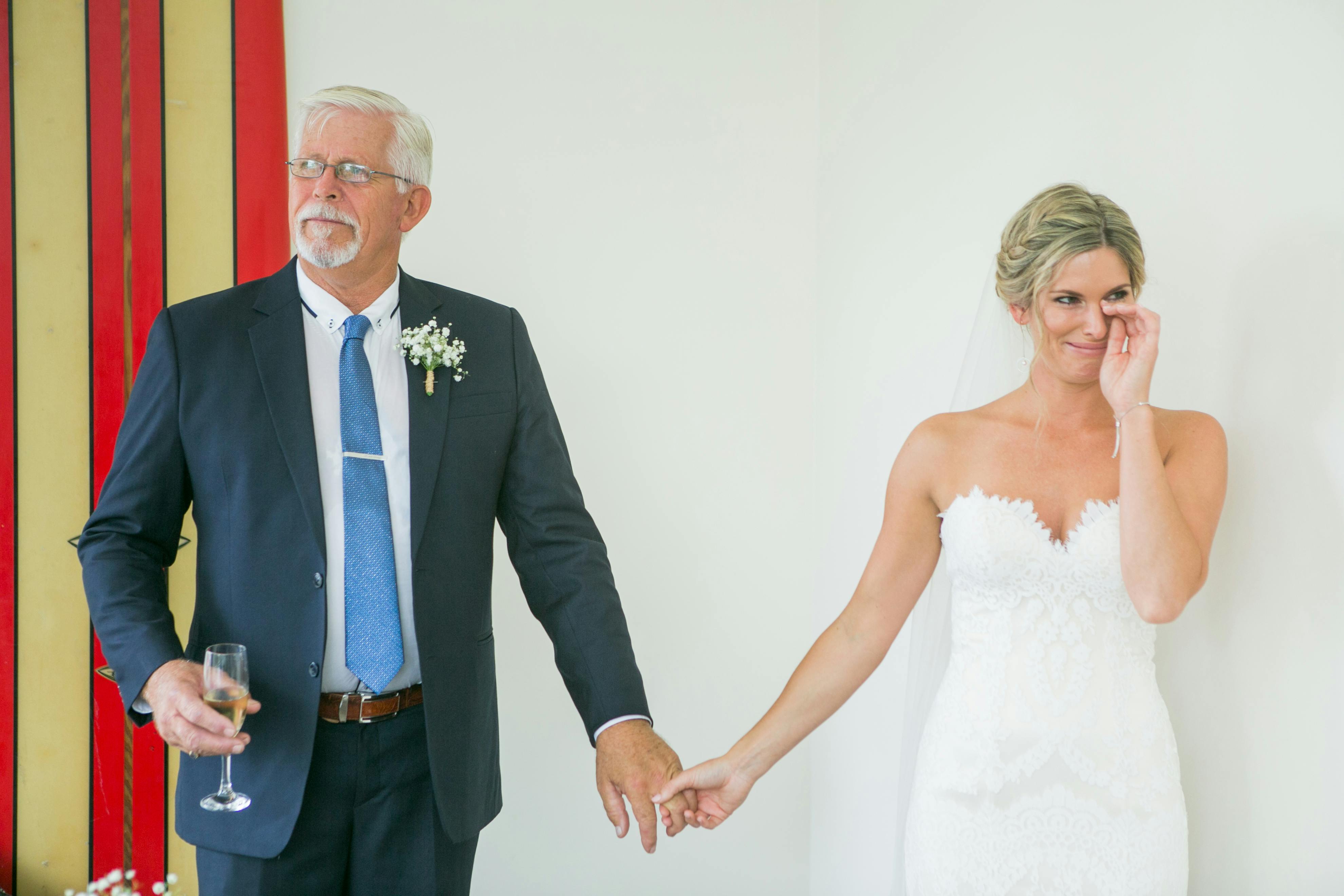
Costs Associated with Hiring a Marriage Celebrant: An Overview
The costs associated with hiring a Marriage celebrant vary depending on various factors. One significant factor is the experience and reputation of the celebrant. Established and reputable celebrants often charge higher fees compared to those who are new to the industry.Another aspect that influences the cost is the level of personalization and customization you desire for your wedding ceremony. If you have specific vows, rituals, or elements that you want to incorporate, it may require additional time and effort from the celebrant, thereby increasing the overall cost.
The location and date of your wedding also play a role in determining the fees charged by a marriage celebrant. Some celebrants charge additional travel expenses if your venue is located a substantial distance away from their area.
Additional services such as pre-wedding meetings, rehearsals, or assistance with document preparation may also incur extra charges. These add-ons vary between celebrants, so it's essential to discuss these requirements during your initial consultations to get an accurate quote.
Lastly, consider the duration of the ceremony. Longer ceremonies typically include more content and can involve multiple elements such as readings, music, or rituals. Celebrants may charge higher fees for extended ceremonies to account for the extra time involved.
It's worth noting that there is no fixed pricing structure when it comes to celebrant costs. Each marriage celebrant sets their own rates based on their unique services and circumstances. Therefore, it's crucial to engage in open communication with potential celebrants to understand their fees and ensure they align with your budgetary constraints.
In conclusion, hiring a marriage celebrant involves various costs which are affected by factors such as their experience, level of personalization, location, additional services required, and ceremony duration. Engaging in thorough discussions about services and fees will help you find a celebrant that meets your expectations within your budget.

The Importance of Certification and Training for Marriage Celebrants
Being a Marriage celebrant is an honorable and fulfilling role that requires proper certification and training. While it may seem unnecessary to some, there are various important reasons why obtaining certification and undergoing training is vital for marriage celebrants.First and foremost, certification ensures that a marriage celebrant has met all the legal requirements and regulations set by the governing authority. Marriage laws can be complex and differ from one country or state to another. By acquiring certification, a celebrant demonstrates their understanding of these laws and ensures that each wedding ceremony they officiate complies with the legal framework in place.
Training plays a significant role as well, equipping marriage celebrants with the necessary skills to perform their duties efficiently and professionally. Whether it's writing personalized vows, conducting rehearsals, or understanding cultural customs related to weddings, proper training enables celebrants to cater to diverse couples' needs effectively. This training often covers important aspects like public speaking, event management, legalities, ethical considerations, and conflict resolution techniques. Such comprehensive training helps celebrants deliver high-quality ceremonies that truly reflect the couple's desires while adhering to legal obligations.
Furthermore, certification and training provide an assurance of professionalism and credibility to couples seeking a marriage celebrant for their special day. When choosing someone to officiate their ceremony, couples want an individual who is knowledgeable, reliable, and capable of creating a heartfelt atmosphere. Certification acts as tangible proof that a celebrant meets certain standards of knowledge and proficiency in carrying out their responsibilities.
Beyond legality and credibility, certification and ongoing training facilitate professional development within the field of marriage celebrancy. Continuous learning allows celebrants to stay updated on regulatory changes or new practices emerging in the industry. Participating in workshops, attending conferences, or joining professional associations become opportunities not just to improve skills but also to connect with other colleagues, exchange ideas, and discuss best practices. These avenues help elevate the quality of services offered by marriage celebrants collectively.
Lastly, the importance of certification and training lies in ensuring the overall success and satisfaction of couples on their wedding day. A seamlessly conducted ceremony creates a memorable experience for everyone involved, and a well-trained celebrant ensures this outcome. By obtaining the necessary certifications and ongoing training, marriage celebrants can better handle unexpected situations or challenges that may come up during a wedding. They possess the expertise to customize ceremonies based on individual preferences, execute rituals precisely, and manage any unforeseen circumstances calmly.
In conclusion, certification and training are indispensable aspects of being a marriage celebrant. They offer legal compliance, validate expertise, enhance professionalism, encourage continual growth, and ultimately contribute to creating beautiful and meaningful wedding ceremonies. Wedding couples seek peace of mind knowing they have chosen a certified professional who will make their special day truly unforgettable.

Cultural and Interfaith Ceremonies: The Flexibility of Using a Marriage Celebrant
When it comes to celebrating love through marriage ceremonies, embracing cultural and interfaith traditions can add a beautiful and meaningful touch. This is where the flexibility of using a Marriage celebrant comes into play. Marriage celebrants are trained professionals who not only perform legal wedding ceremonies but also offer the freedom to incorporate various cultural and interfaith elements into the ceremony.Cultural ceremonies allow couples to honor their heritage, traditions, and ethnic backgrounds. A marriage celebrant can provide guidance on how to include specific rituals, symbols, or customs that reflect these cultural roots. Whether it's the exchange of garlands during an Indian wedding, jumping the broom in African-American weddings, or the breaking of a glass in Jewish ceremonies, a marriage celebrant can facilitate these traditions seamlessly.
Interfaith ceremonies are gaining popularity as more couples come from diverse religious backgrounds. A marriage celebrant can help craft a ceremony that represents both partners' beliefs and values, ensuring harmony and inclusivity. They possess knowledge about different religious practices and can weave together elements from multiple faiths while maintaining respect for each tradition involved. Including prayers, blessings, or readings from various religious texts can bring together both families' spiritualities within the ceremony.
The flexibility offered by a marriage celebrant truly allows couples to create a personalized and unique wedding experience. From writing customized vows that reflect individual love stories to incorporating favorite poems or quotes that hold sentimental value, there are endless possibilities to make the ceremony resonantly reflect the couple's journey. A marriage celebrant listens intently to the couple's desires and incorporates their preferences into every aspect of the event, ensuring every element aligns with their vision for an unforgettable celebration.
In summation, cultural and interfaith weddings hold great significance for many couples today. The flexibility extended by a marriage celebrant allows them to embrace these traditions with ease while ensuring inclusivity and respect for diverse backgrounds. With their knowledge, guidance, and talent for tailoring ceremonies to suit individual preferences, marriage celebrants play a key role in creating meaningful and unforgettable wedding experiences for couples and their loved ones.
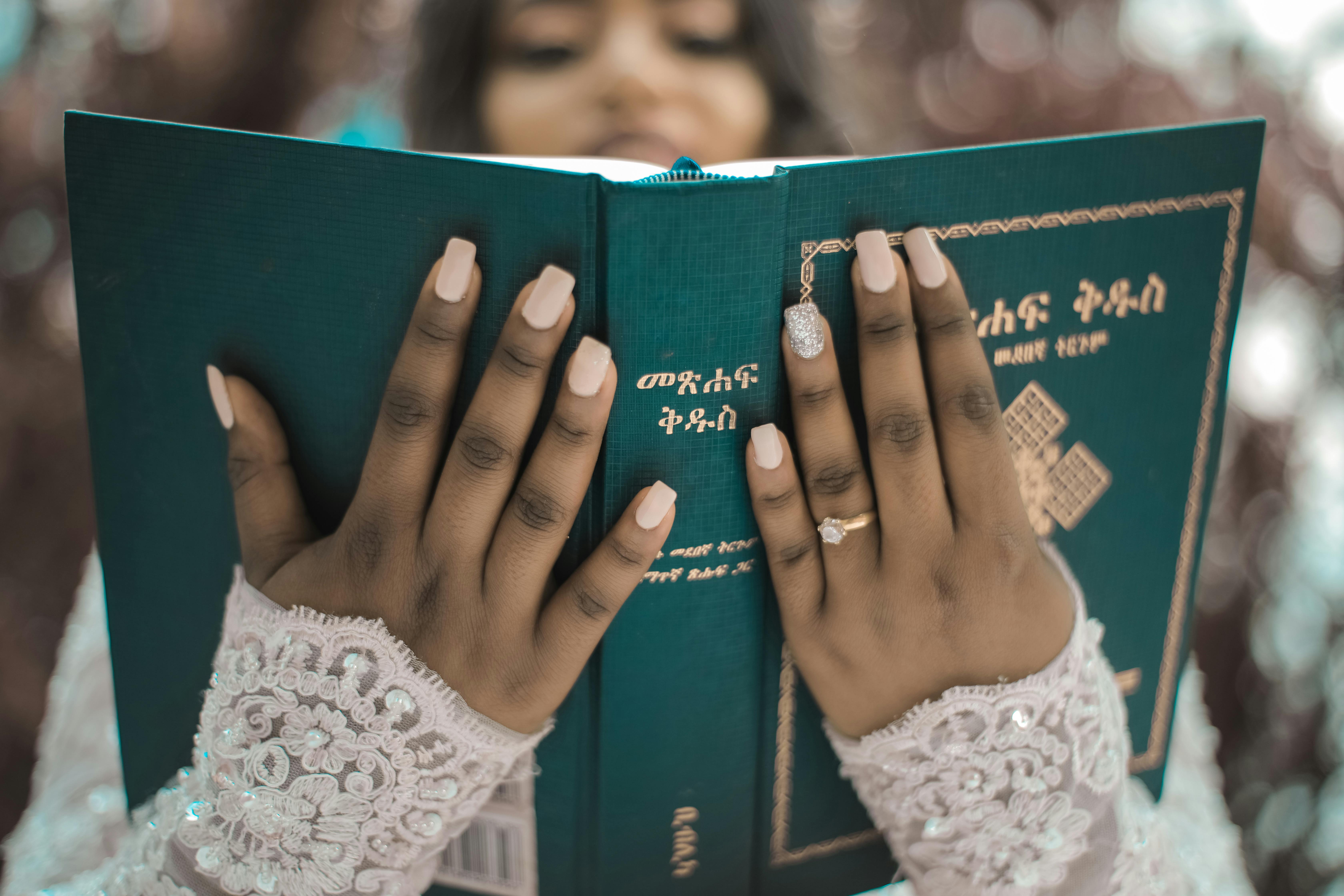
Navigating Challenges: When Things Go Wrong with a Marriage Celebrant
When it comes to weddings, couples often rely on Marriage celebrants to ensure a smooth and memorable ceremony. However, sometimes things don't go as planned, and challenges arise. Navigating these challenges requires open communication, flexibility, and a willingness to adapt. Let's explore some common situations where things may go wrong with a marriage celebrant and how to address them appropriately.- Communication issues: Effective communication is vital in any relationship, including the one between a couple and their marriage celebrant. Misunderstandings or misaligned expectations can occur when important information is not clearly shared or understood. To navigate such challenges:
- Prioritize clear and open communication: Ensure that you express your desires, vision, and any special requirements early on. This allows for better preparation by the celebrant.
- Actively listen: Pay attention throughout conversations and clarify any doubts or ambiguities.
- Regularly update each other: As plans change or new ideas arise, keep the celebrant informed so they can adjust accordingly.
2. Scheduling conflicts: It is not uncommon for scheduling conflicts to arise, especially when considering the availability of both the couple and the celebrant. Mishaps here could create inconvenience or even necessitate rescheduling the wedding. Here's what you can do:
- Book well in advance: To secure your preferred celebrant's availability, make reservations early on.
- Confirmation is key: Double-check dates and finalize arrangements with the celebrant in a timely manner.
- Explore time flexibility: Discuss possible alternatives or compromises if scheduling conflicts arise.
3. Unforeseen circumstances: Life is unpredictable, and last-minute emergencies or unforeseen circumstances can destabilize even the most meticulously planned wedding ceremony. In such situations:
- Back-up plan: Maintain constant communication with your celebrant to discuss potential contingencies in case of unexpected circumstances.
- Have all relevant contact information: Exchange additional contact details (e.g., emergency phone numbers) to ensure prompt communication in urgent situations.
- Adaptability and understanding: Both parties need to remain flexible and empathetic, allowing for changes or adjustments without blaming each other.
4. Personality clashes or unmet expectations: Sometimes, couples may feel as though they don't have a great rapport with their chosen celebrant, leading to personality clashes or disappointment due to unmet expectations. These moments can be handled constructively:
- Reflect on concerns: Discuss any reservations or misgivings openly but respectfully to work through differences.
- Seek compromise: Find middle ground that satisfies both parties' wishes, ensuring an inclusive and harmonious celebration.
- Looking for alternatives: If conflicts persist and solutions seem unreachable, it may be necessary to consider finding a new celebrant who better aligns with your needs and expectations.
Navigating these challenges is vital for maintaining positive relationships with marriage celebrants while successfully overcoming any obstacles that may arise along the wedding planning journey. Effective communication, adaptability, and empathy are key elements that contribute to resolving issues and ultimately ensuring a joyous ceremony.

Latest Trends in Ceremonies Conducted by Marriage Celebrants
Marriage celebrants play a significant role in designing and conducting unique and personal wedding ceremonies. Over the years, there have been various trends arising in the ceremonies conducted by marriage celebrants. Here is an overview of some of the latest trends in wedding ceremonies:- Personalized ceremonies: Modern couples are increasingly seeking personalized and meaningful ceremonies that reflect their love story and unique personalities. Marriage celebrants have embraced this trend, taking the time to get to know the couple, their values, and their journey so they can design a tailor-made ceremony that truly resonates with them.
- Symbolic rituals: Symbolic rituals have become increasingly popular in wedding ceremonies as they symbolize unity, love, and commitment between the couple. Celebrants incorporate various rituals, such as ring warming, handfasting, sand blending, or candle lighting, to add depth and symbolism to the ceremony.
- Inclusion of cultural traditions: With intercultural and mixed-background marriages on the rise, couples often want to incorporate cultural elements into their ceremonies. Marriage celebrants are well-versed with diverse cultural traditions and can skillfully integrate them into the wedding ceremony to honor both families' backgrounds.
- Technology integration: Technology has become an integral part of modern weddings, enabling couples to share their special moments with loved ones who cannot attend physically. Marriage celebrants now incorporate live streaming of the ceremony, virtual guest participation, or a dedicated hashtag for guests to share photos and messages throughout the event.
- Sustainable and eco-friendly ceremonies: As more couples prioritize sustainability in all aspects of their lives, marriage celebrants have embraced environmentally conscious wedding ceremonies. This may include utilizing recycled or locally sourced materials for decorations or promoting digital invitations instead of paper-based ones.
- Non-traditional venues: Modern couples are no longer limited by traditional venues such as churches or reception halls. Marriage celebrants actively work with couples to find alternative locations like beaches, gardens, mountaintops, barns or even their own backyards, creating a unique atmosphere that perfectly represents their vision.
- Blending cultures and faiths: Interfaith or intercultural weddings have become increasingly common, with couples seeking to celebrate their diverse backgrounds on their wedding day. Marriage celebrants adapt by skillfully blending different cultural or religious elements into the ceremony, ensuring a harmonious union of traditions.
- Inclusive language and gender-neutral ceremonies: Marriage celebrants are adapting to changing societal norms by using inclusive language that removes gender stereotypes from the ceremony scripts. Instead of sticking to traditional gender-specific roles for partners, marriage celebrants now allow couples to choose the titles and roles that feel appropriate to them.
- Intimate micro-weddings: This recent trend, driven partly by the COVID-19 pandemic, has resulted in smaller-scale weddings. Marriage celebrants have adjusted to the rise in micro-weddings, creating intimate ceremonies tailored specifically for the limited number of guests in attendance.
- Focusing on the experience: More couples are prioritizing the overall experience and emotional connection during their wedding ceremony rather than simply following conventional rituals. Marriage celebrants are skilled at crafting unique experiences that not only unite the couple but also engage and connect with their guests on a deeper level.
These are just a few of the significant trends observed in wedding ceremonies conducted by marriage celebrants in recent times. It's clear that couples are seeking more personalized, inclusive, and meaningful experiences, encouraging celebrants to continually evolve and innovate to meet these desires.
